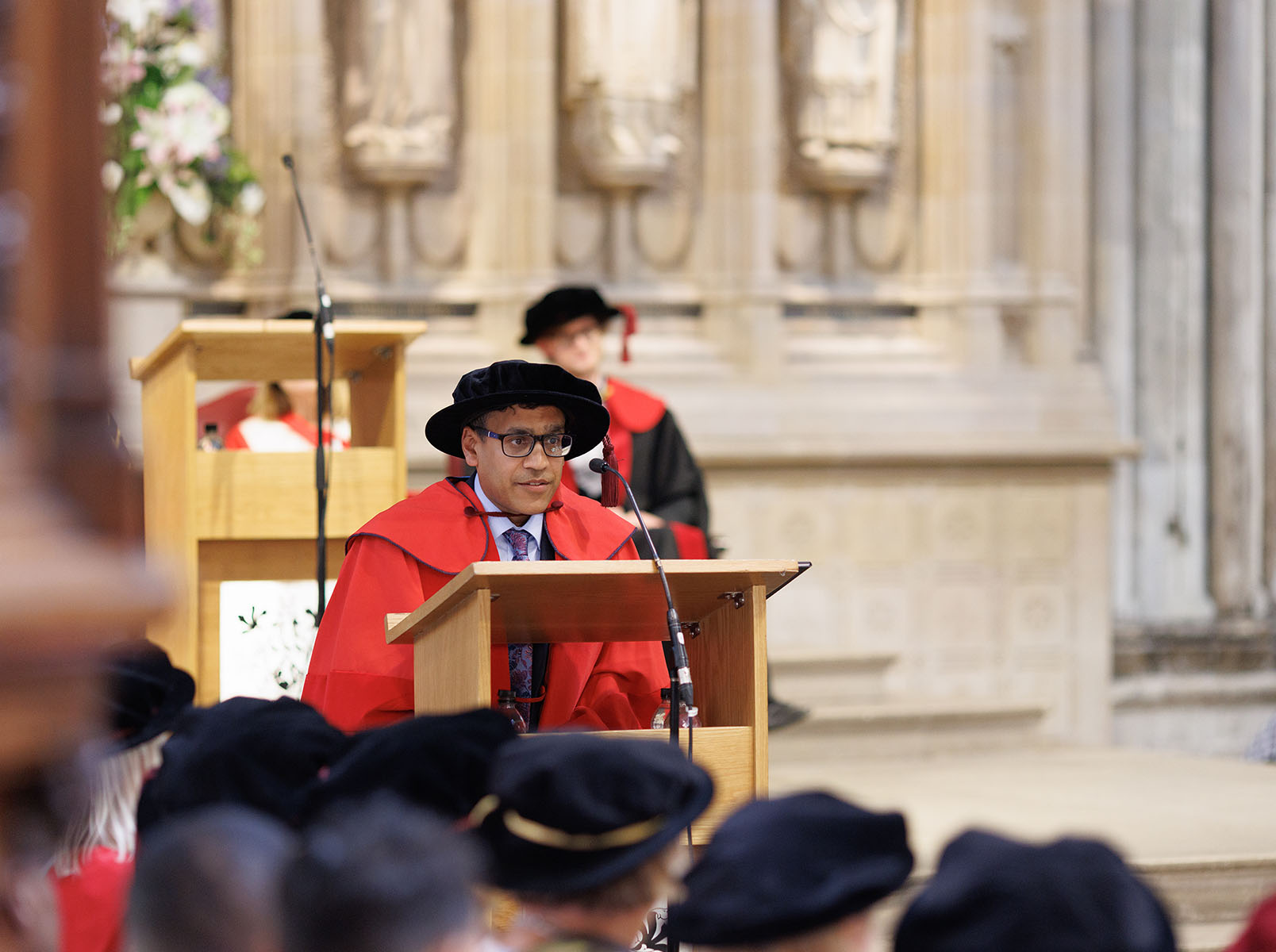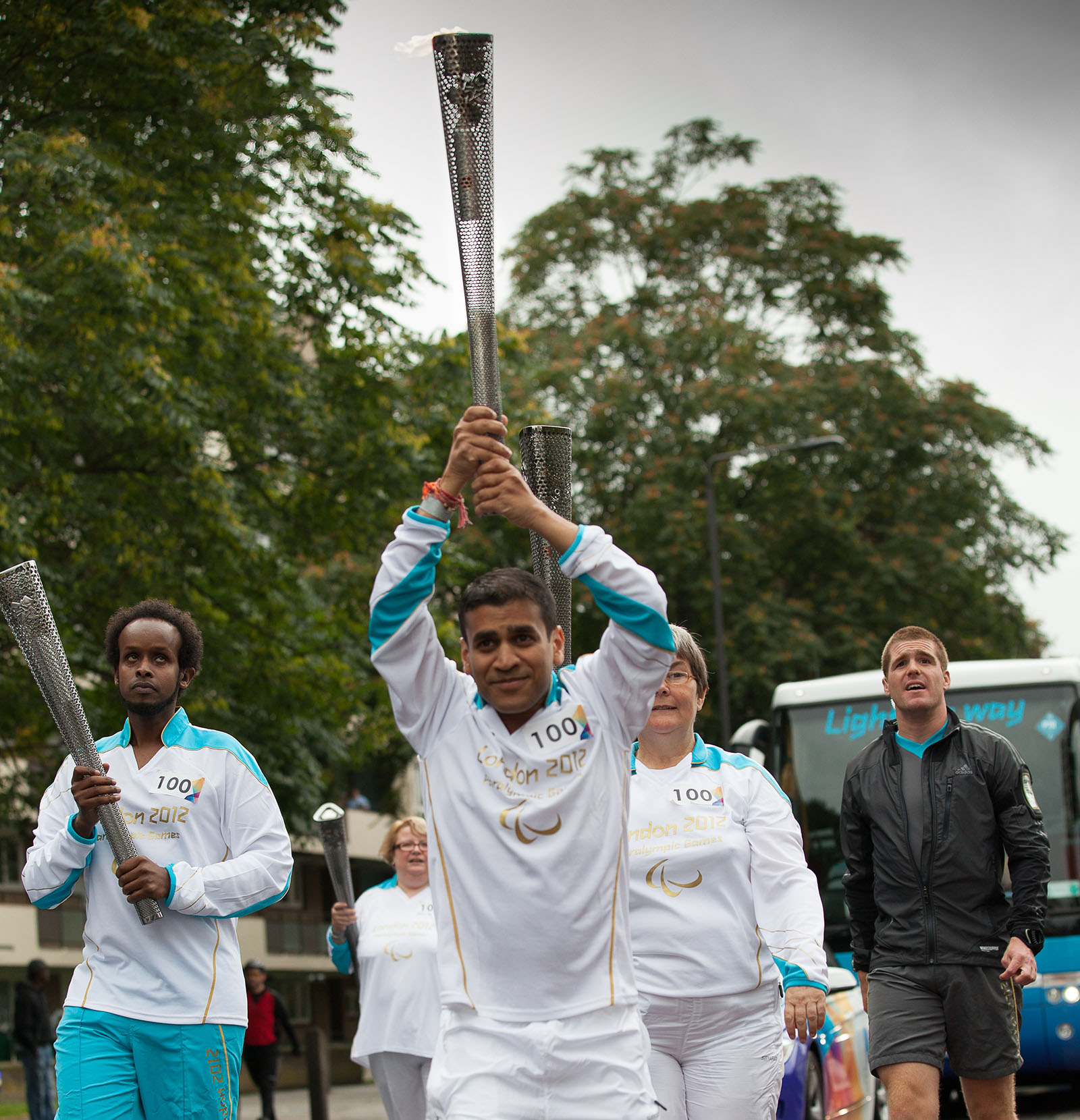Disability Rights and Race Equality Champion to be VIP Speaker at Wellbeing Awards
We are delighted to announce that Dr Kush Kanodia will be the VIP Speaker at the 2025 Kent Mental Wellbeing Awards in October.
The Kent Mental Wellbeing Awards showcase the people, organisations and initiatives that help us cope with life.
There is still time to submit a nomination for this year’s awards and the deadline is noon on 1 September. Winners will be invited to an awards celebration staged in October by the mental health charity Mind in Bexley and East Kent in collaboration with a range of wellbeing and mental health organisations.
Dr Kanodia is an influential campaigner with a history of championing equality and inclusion. Before the event, Dr Kanodia agreed to speak to us for a Q&A so that we could share his inspirational story.

Q: Can you please tell us about your journey – from your early life and NHS experiences to co-founding global inclusion organisations – and what has driven your lifelong commitment to disability rights?
I’m a child of the NHS. My father is a retired GP, and we lived above our surgery in Hackney, back when it was far from the fashionable neighbourhood it is today.
When I was very young, we moved to Chelsea, one of the most affluent areas in the UK. That shift gave me a rare perspective, experiencing both ends of the socioeconomic spectrum from an early age.
I was born with a rare genetic condition, Multiple Epiphyseal Dysplasia, which severely affected my mobility. Throughout my childhood, I lived with constant pain, my hips could dislocate just from standing or walking. It wasn’t until after completing my undergraduate studies at Kent that I had both hips replaced. Only then did I realise how much the pain had been limiting not just my body, but my ability to concentrate, learn, and fully engage with life.
After surgery, I began to thrive, completing an MBA with distinction at Kent Business School and entering investment banking. I was at Morgan Stanley when Lehman Brothers collapsed, the largest corporate bankruptcy in history. Having previously worked there, it was a turning point. I realised that profit without purpose, no longer had any meaning to me.
In 2009, I made the bold decision to pivot from finance to social entrepreneurship, founding Choice International. My goal was to drive systemic change for disabled people, rooted in the principles of the Social Model of Disability and the Disability Mantra “Nothing About Us, Without Us.” Fortunately, I met Professor Mike Oliver while studying at Kent the Social Model pioneer who helped shape my lifelong commitment to be a changemaker for disability rights.
Your campaign work has led to major policy shifts. What were the challenges in those campaigns and what lessons can we learn about creating systemic change?
- The Power of Lived Experience
Too often, systems prioritise academic experience and professional experience, while overlooking the most vital perspective: lived experience. As a disabled person who has lived with chronic pain and undergone life-changing surgery, I’ve experienced barriers that many policymakers simply don’t see. That insight drove my campaign to abolish hospital parking charges for disabled people, a policy that directly contradicted the very founding principles of the NHS: accessible for all and free at the point of delivery.
- Speaking Truth to Power
Systemic change requires the courage to challenge those at the very top of the hierarchy. During the NHS campaign, I engaged directly with both the Minister for Health and the CEO of NHS England. For the ULEZ exemption, I met the Mayor of London on the very day the policy shifted. These conversations demand belief, resilience and conviction, especially when we know that speaking out in such institutions can carry personal and professional risks. We all know the risks whistleblowers face, even with safeguards supposedly in place.
- Silence from Government and Media
Despite starting and leading campaigns that transformed two of the UK’s largest systems, there’s been no formal recognition from government or mainstream media. Even though our work during the campaign was widely covered in national media, these landmark disability inclusion victories have been largely erased from the official record. Were it not for acknowledgements like my honorary doctorate from Kent University and the Campaigner of the Year award from the Sheila McKechnie Foundation, the success of these campaigns might have been lost.
Disabled people have and are transforming society’s most significant systems. It’s our responsibility to ensure those stories are told to inspire, empower, and pave the way for the next generation of changemakers.
As an advisor to disability rights and innovation organisations, how do you see the connection between technology, mental wellbeing and disability inclusion evolving over the next 5–10 years?
Technology is one of the most powerful enablers of disability inclusion, particularly in the areas of health, mental wellbeing, and social participation. Yet the NHS and much of the UK public sector continue to lag behind when it comes to adopting accessible, inclusive digital solutions. Despite clear legal frameworks, including the Public Sector Bodies (Websites and Mobile Applications) Accessibility Regulations and the European Accessibility Act (EAA) — many organisations are still not meeting their obligations.
The EAA, which came into force across the EU on 28 June 2025, is a landmark shift in digital inclusion. It requires equal access to digital products and services for all consumers, including businesses and public bodies in the UK. So I ask: are your public sector organisations meeting their legal and statutory responsibilities?
I am now an Ambassador, after serving 12 years as a Trustee of AbilityNet, a pioneering UK charity transforming the lives of older and disabled people, to build a digital world that is accessible to all.
I believe every public sector body should be required to carry out periodic, independent physical and digital accessibility audits by accredited organisations. These results should be publicly available, ensuring transparency and accountability.
We cannot afford to wait for enforcement to catch up, mandatory audits are the fastest route to systemic change and the key to building a truly inclusive digital future for us all.
You’ve been recognised both for race equality and disability rights – two intersecting forms of identity. How has your own lived experience shaped your approach to championing intersectional inclusion, and what advice do you have for others working across multiple advocacy areas?

Dr Kush Kanodia carrying the Paralympic torch
The NHS now has both the Workforce Race Equality Standard (WRES) and the Workforce Disability Equality Standard (WDES), acknowledging the systemic inequalities faced by these communities. Yet despite clear evidence, including the disproportionate impact of the pandemic and cost-of-living crisis for both communities, intersectionality still isn’t being meaningfully measured across government or the public sector.
As a disabled person of colour and a carer for both my elderly and disabled parents, intersectionality is my daily reality. I often accompany my parents to NHS appointments. At one visit, I witnessed a clinician ask my mother a question, unaware that she had a hearing impairment and that English is not her first language. She misheard and began answering a completely different question. Neither party realised they were talking at cross purposes.
It struck me how easily this kind of miscommunication could be avoided. A simple tablet device transcribing spoken words in real-time could have clarified everything. With today’s technology, the solutions aren’t always complex, but they do require the will to recognise and address compounding barriers of intersectionality. If we truly want to include those most excluded in our society, we must start measuring intersectionality. Because what gets measured, gets changed.
Why did you choose to be the VIP speaker at the Kent Mental Wellbeing Awards, and what message do you hope to leave attendees with?
Kent holds a very special place in my heart. It’s where I completed both my undergraduate degree and MBA, where I was awarded my Honorary Doctorate, from Canterbury to Rochester Cathedral and where my personal transformation truly began. It was here that I moved from a life shaped by pain and limitation to one defined by purpose and impact. From that transformation, my mission for social inclusion was born.
I chose to speak at the Kent Mental Wellbeing Awards because I believe mental health and disability inclusion are deeply connected. When systems exclude people, through inaccessibility, discrimination, or neglect, the harm isn’t just physical. It affects our confidence, our dignity, and our mental wellbeing.
I’ve been fortunate to receive many awards throughout my career. Today, it’s a privilege to stand on the other side, to honour and uplift the next generation of changemakers reshaping our world with courage and compassion.
Real change is possible, even in the largest, most significant systems in the world. But it always begins with one person brave enough to take the first step, to speak truth to power. No person can transform a system by themselves, it has to transition from a Me to a We.
I’ll leave you with the words of Alan Turing, the namesake of Turing College recognised by Kent University even before the UK Government offered its apology or Royal Pardon:
“Sometimes it is the people no one can imagine anything of who do the things no one can imagine.”
We are those people.
Let us imagine boldly.
Act fearlessly.
Because confidence is contagious and if you don’t believe in yourself, how can you expect anyone else to?
———–
Thanks to Dr Kanodia for speaking to us and we look forward greatly to hearing him speak at the 2025 Kent Mental Wellbeing Awards.
If you have been inspired by Dr Kanodia’s interview and are thinking about nominating for the Kent Mental Wellbeing Awards, there is still time. Whether it is in school, business, community or family, so many of us have been lucky to have people and organisations with ideas, tips and tactics to help us cope. We should celebrate those mental health and wellbeing champions in our community and share this best practice.
To submit a nomination, please visit: www.kentmentalwellbeingawards.org.uk



